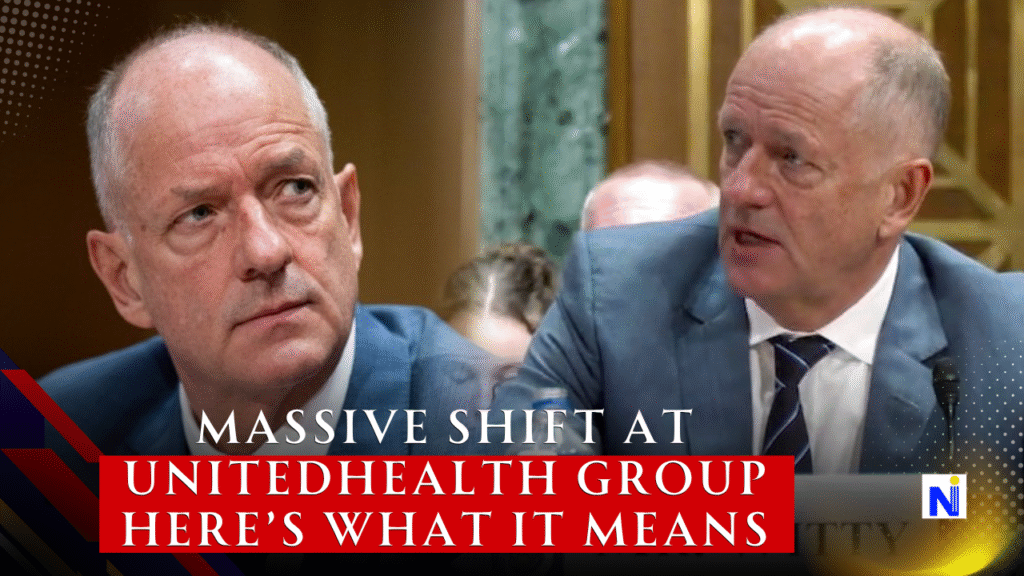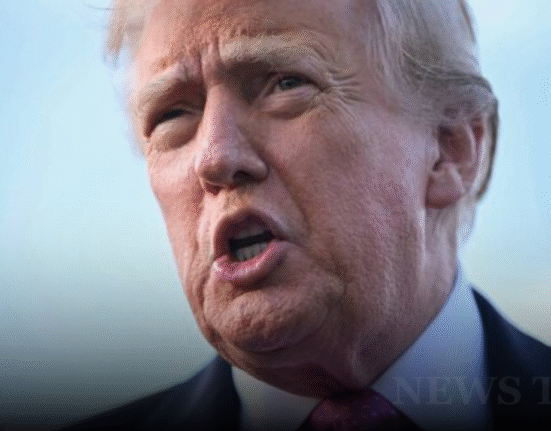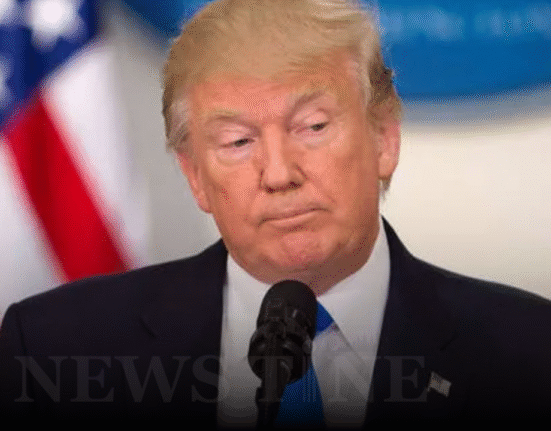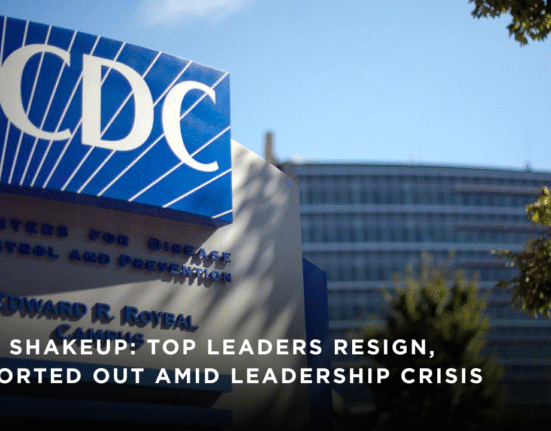
When news broke on May 13, 2025, that Andrew Witty was stepping down as CEO of UnitedHealth Group due to “personal reasons,” many in the health-care world were stunned. For a company that generated over $400 billion in revenue last year, a sudden leadership change—paired with the suspension of its 2025 financial forecast—felt seismic. In this article, we’ll unpack the circumstances behind this shakeup, explore its implications for patients, providers, and investors, and consider how former CEO Stephen Hemsley’s return might steer the organization toward calmer waters.
Why Andrew Witty’s Departure Matters
A Tumultuous Tenure
- Record Growth and Turbulence: Under Andrew Witty’s leadership (2021–2025), UnitedHealth Group saw revenue climb from $257 billion to over $400 billion—an increase of more than 55%—while navigating cyberattacks, regulatory probes, and the tragic murder of a top executive.
- Public Scrutiny: In December 2024, UnitedHealthcare CEO Brian Thompson was fatally shot in Manhattan, a crisis that rippled through corporate security protocols nationwide.
- Earnings Miss: In April 2025, UNH posted its first quarterly earnings miss since 2008, citing unexpectedly high medical costs and operational headwinds in its Optum unit.
“Leading the people of UnitedHealth Group has been a tremendous honor,” Witty said in his resignation statement, though he offered no further details on what prompted his immediate departure.
Timeline of Key Events
| Date | Event |
|---|---|
| January 2024 | Major cyberattack hits Optum, affecting 200 million Americans |
| December 4, 2024 | Brian Thompson, UnitedHealthcare CEO, is tragically murdered |
| April 2025 | First earnings miss since 2008; outlook trimmed |
| May 13, 2025 | Andrew Witty resigns; 2025 forecast suspended; Stephen Hemsley returns |
Stephen Hemsley’s Legacy and Return
A Steady Hand in Stormy Seas
Stephen J. Hemsley first led the company from 2006 to 2017, during which UNH grew into a $400 billion health-care conglomerate encompassing private insurance, pharmacy benefits management, and care delivery. As board chair since 2017, he remained deeply involved in strategic decisions.
“Steve Hemsley brings a combination of strategic vision and deep operational focus that are highly valuable to our company,” said Michele Hooper, lead independent director. “His return should instill confidence as we navigate this challenging period.”
What Hemsley Brings to the Table
- Institutional Knowledge: Nearly three decades with UnitedHealth, spanning operational roles and the C-suite.
- Proven Track Record: Oversaw the company’s transformation into the nation’s largest private insurer.
- Investor Confidence: Markets responded with relief, with some analysts suggesting Hemsley’s history could stabilize UNH’s performance.
Financial Fallout: Forecast Suspended
In an unexpected move, UnitedHealth Group withdrew its full-year 2025 guidance, citing two primary factors:
- Rising Medical Costs: New enrollees in Medicare Advantage plans have required more care than anticipated—especially for joint replacements and cardiac procedures delayed during the pandemic.
- Broader Benefit Offerings: The company expanded benefit types this quarter, increasing utilization across the board.
Stock Market Reaction
- Shares plunged over 10% in premarket trading on May 13, marking a four-year low.
- Competitors like Humana (down 6%), CVS Health (down 4%), and Elevance Health (down 6%) also saw declines, underscoring industry-wide cost pressures.
“The abruptness certainly is a surprise,” commented Kevin Gade, COO at Bahl & Gaynor. “At a certain point, leadership must be held accountable for these kinds of misses.”
Industry Ripples: Competitors and Costs
A Rising Tide of Medical Expenses
Since mid-2023, Medicare Advantage plans have been grappling with surges in post-pandemic care demands:
- Joint and Hip Replacements: Procedures surged by 18% year-over-year as seniors caught up on delayed surgeries.
- Telehealth Utilization: While telehealth visits remain elevated, reimbursements have not kept pace with brick-and-mortar equivalents, squeezing margins.
Impact on Peers
| Insurer | Share Movement (May 13) | Year-to-Date Change |
|---|---|---|
| UnitedHealth | –10% | –35.5% |
| Humana | –6% | –22% |
| CVS Health | –4% | –18% |
| Elevance Health | –6% | –30% |
What’s Next for UnitedHealth Group
Return to Growth in 2026
Despite the current headwinds, UNH projects a return to multi-year growth by 2026, driven by:
- Optimizing Medicare Advantage Underwriting: Fine-tuning risk selection and care coordination to curb unexpected costs.
- Technology Investments: Bolstering Optum’s digital health platforms to improve efficiency.
- Strategic Partnerships: Expanding value-based care models with health systems nationwide.
Balancing Innovation and Prudence
Hemsley faces the dual challenge of:
- Restoring Investor Trust: By re-establishing clear financial guidance and transparency.
- Maintaining Member Satisfaction: Ensuring that cost-containment measures do not erode patient access or quality.
Practical Takeaways for Stakeholders
- Members: Stay informed about benefit changes—check your Medicare Advantage packets for any updates.
- Providers: Anticipate tighter utilization reviews as medical costs stabilize.
- Investors: Watch second-quarter earnings guidance for signs of cost remediation; consider blue-chip diversification.
- Policy Makers: Monitor how insurer cost-management strategies affect access to essential services for seniors.
Conclusion and Call to Action
The abrupt leadership change at UnitedHealth Group underscores the immense pressures facing today’s health-care insurers—from surging post-pandemic medical utilization to high-stakes cybersecurity and public safety concerns. With Stephen Hemsley back at the helm, many hope UNH will realign its strategy, restore market confidence, and resume its long-standing growth trajectory by 2026.
FAQ Section
Q1: Why did Andrew Witty step down as CEO?
A1: Witty cited “personal reasons” for his immediate resignation on May 13, 2025, without further elaboration. He’ll remain as a senior adviser during the transition.
Q2: Who is Stephen Hemsley and why was he chosen?
A2: Hemsley led the company from 2006–2017, transforming it into a $400 billion conglomerate. His deep institutional knowledge and proven track record made him the board’s choice to guide UNH through turbulence.
Q3: How did the market react to the news?
A3: UnitedHealth’s stock dropped over 10% premarket on May 13, while peer insurers such as Humana, CVS Health, and Elevance also saw declines of 4–6%.
Q4: When does UNH expect to return to growth?
A4: The company forecasts a return to its long-term growth range (13–16% annual earnings growth) by 2026, assuming cost pressures moderate and strategic initiatives take hold.






